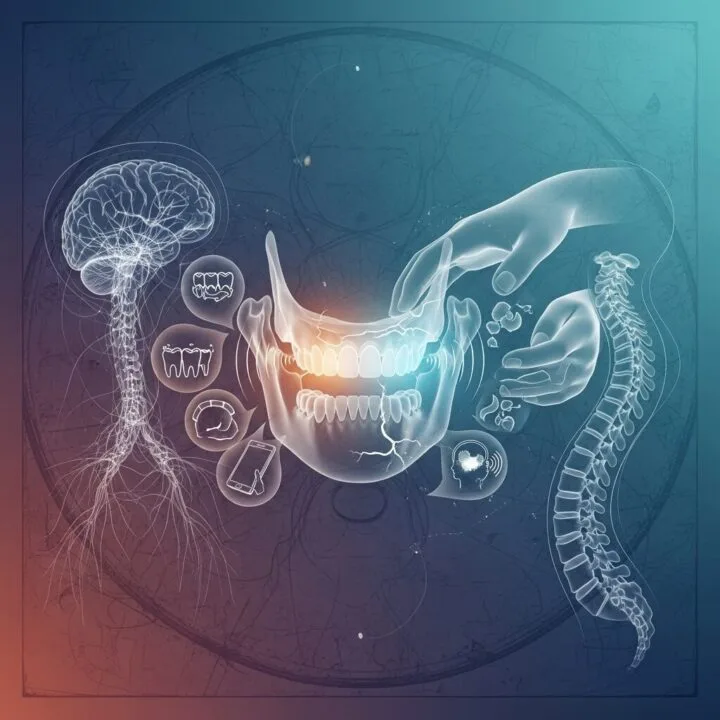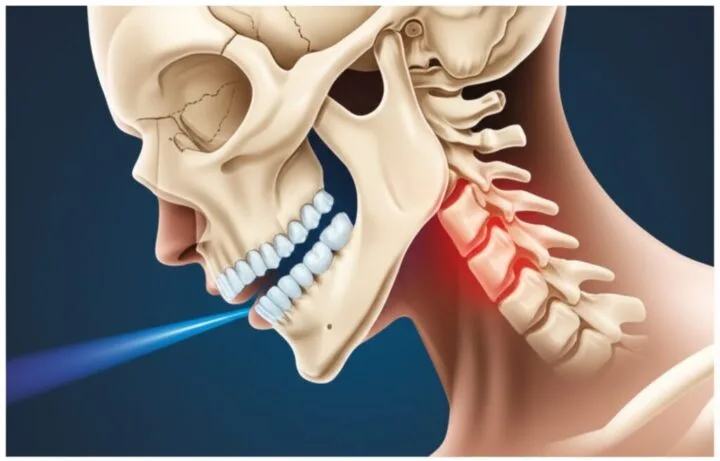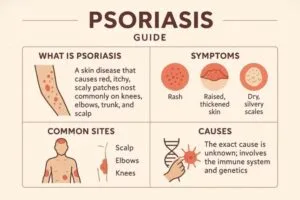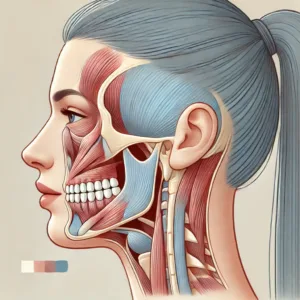Things That Make TMJ Worse: A Comprehensive Guide to Temporomandibular Joint Disorder Triggers
Table of Contents
Things That Make TMJ Worse: A Comprehensive Guide to Temporomandibular Joint Disorder Triggers
Introduction
Temporomandibular joint (TMJ) disorders affect millions worldwide, causing significant discomfort and impacting daily life. Understanding the factors that exacerbate these conditions is crucial for effective management and relief. This comprehensive guide delves into the scientific understanding of TMJ triggers, offering evidence-based insights for those seeking to alleviate their symptoms.
Stress: The Silent TMJ Aggravator
Psychological stress plays a pivotal role in TMJ symptom exacerbation. When we’re under pressure, our body’s natural response often includes increased muscle tension, particularly in the jaw and facial areas.
The Stress-TMJ Connection
- Elevated cortisol levels leading to inflammation
- Increased muscle activity in the masticatory system
- Altered pain perception thresholds
Research by Wieckiewicz et al. (2017) demonstrated a strong correlation between stress levels and TMJ disorder severity. Implementing stress reduction techniques can significantly alleviate symptoms.
Parafunctional Habits: The Jaw’s Worst Enemy
Parafunctional habits, especially bruxism (teeth grinding or clenching), are major contributors to TMJ disorders. These unconscious behaviors can put excessive strain on the jaw joint and surrounding muscles.
Common Parafunctional Behaviors
- Nocturnal bruxism
- Daytime clenching
- Nail biting or chewing on non-food items
A study by Michelotti et al. (2010) found that reducing these parafunctional activities led to marked improvement in TMJ symptoms. Awareness and behavioral modification are key in managing these habits.
Postural Problems: The Neck-Jaw Connection
Poor posture, particularly affecting the head and neck, can have a cascading effect on TMJ health. The interconnectedness of these areas means that misalignment in one can lead to issues in another.
Posture-Related TMJ Stressors
- Forward head posture
- Prolonged smartphone use (“text neck”)
- Improper ergonomics at workstations
Rocha et al. (2017) established a significant link between forward head posture and TMJ disorders. Maintaining proper posture and ergonomics can help alleviate TMJ stress.
Dietary Choices: You Are What You Chew
The foods we consume and how we eat them can significantly impact TMJ health. Certain dietary habits can put unnecessary strain on the jaw joint and muscles.
TMJ-Stressing Dietary Habits
- Consuming excessively hard or chewy foods
- Taking large bites
- Chewing gum frequently
While no specific diet has been proven to cure TMJ disorders, modifying eating habits can reduce stress on the joint. Opting for softer foods during flare-ups can provide relief.
Sleep Disorders: Nighttime Neglect
Sleep-related issues can exacerbate TMJ symptoms, often without the individual’s awareness. The way we sleep and the quality of our sleep can have a significant impact on jaw health.
Sleep-Related TMJ Aggravators
- Sleep bruxism
- Sleeping in positions that misalign the jaw
- Sleep apnea
Sanders et al. (2013) found a higher prevalence of TMJ pain among individuals with sleep bruxism. Addressing sleep disorders and improving sleep hygiene can positively impact TMJ health.
Excessive Jaw Use: Too Much of a Good Thing
Certain activities that involve repetitive or extensive jaw movements can strain the TMJ. While these activities may be unavoidable for some, being aware of their impact is crucial.
Activities That Overwork the TMJ
- Excessive talking or singing
- Playing wind instruments
- Frequent gum chewing
Nishiyama et al. (2016) reported a higher prevalence of TMJ disorders among professional trumpet players. Being mindful of activities that require prolonged jaw use can help manage symptoms.
Conclusion
Understanding and addressing these common exacerbating factors is crucial in managing TMJ disorders effectively. By modifying behaviors, improving posture, managing stress, and being mindful of dietary and sleep habits, individuals can significantly reduce TMJ symptoms and improve their quality of life. Remember, while these strategies can be helpful, it’s always important to consult with a healthcare professional for personalized advice and treatment.
FAQs
- Can stress directly cause TMJ disorders?
While stress itself doesn’t cause TMJ disorders, it can significantly exacerbate symptoms by increasing muscle tension and altering pain perception. - How does poor posture affect TMJ health?
Poor posture, especially forward head posture, can misalign the jaw and increase strain on the TMJ, potentially worsening symptoms. - Are certain foods particularly problematic for TMJ sufferers?
Hard, chewy, or large pieces of food can strain the TMJ. Softer foods are generally better during symptom flare-ups. - Can sleeping position impact TMJ symptoms?
Yes, sleeping on your stomach or with improper pillow support can misalign the jaw and potentially worsen TMJ symptoms. - How does bruxism affect TMJ health?
Bruxism (teeth grinding or clenching) puts excessive pressure on the TMJ, often leading to pain and dysfunction.














Post Comment